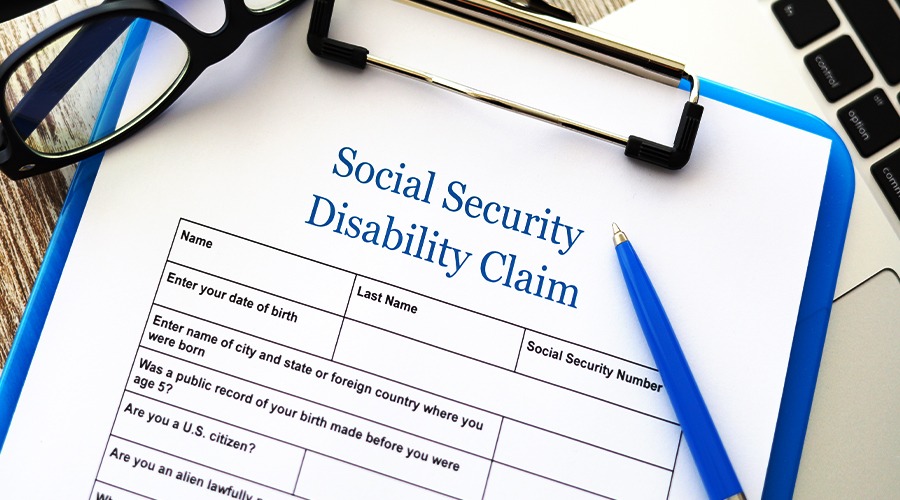Are you disabled? If so, depending on your circumstances, you may be receiving Social Security benefits, or you may be considering whether or not to apply. In either case, you may have many questions about the process – and that’s only understandable. After all, any legal process can be complex, and Social Security law is no different. One of the questions that many people ask is, “If I’m currently receiving or earning an income of some kind, can I still receive disability benefits from Social Security? If so, how much can I earn?”
That’s a reasonable and important question to ask. You still want to be able to provide for yourself and your family – and being disabled doesn’t change that. That’s not to mention that you likely have regularly incoming medical bills if your disability requires ongoing treatment. It’s normal to be concerned about paying all of those bills, and still being able to adequately care for yourself and your family.
The good news is that the short answer to this question is “yes” – you can earn an income while receiving disability benefits. As with any legal matter, however, different factors will affect the amount you can earn.
First and most importantly, it’s important to keep in mind that the amount that you can earn while receiving disability will vary based upon whether or not you receive Social Security Disability Insurance (SSDI benefits) or Supplemental Security Income (SSI) benefits. Typically, receipt of SSDI benefits is awarded based on having a qualifying disability and working a job through which you have paid into the Social Security system over a necessary period of time. To receive SSI benefits, however, a determination is typically made based on age and disability, as well as having limited income and resources.
- SSDI Benefits: Generally, those who are receiving SSDI benefits cannot engage in “substantial gainful activity” (SGA, for short) while receiving disability benefits. Typically, Social Security considers those who make more than $1,350 per month (or $2,260 if blind) in 2022 to be engaged in SGA. Those who earn more than that amount can typically expect a decrease in their SSDI benefits. There is a limited exception to this rule for those who attempt a “trial work period” – which is usually around nine months or so. During the trial work period, an SSDI recipient can earn more than the SGA amount and continue to receive benefits.
- SSI Benefits: Those receiving SSI benefits will not typically be subjected to the SGA limit set forth above. Generally, those who are receiving SSI benefits may work and earn income, provided that the earnings do not exceed the limits that are determined by the Social Security Administration. In 2022, the SSA will pay SSI benefits of up to $841 per month for an individual, and $1,261 per month for a couple. This amount is called the federal benefit rate. Typically, your monthly benefit amount is the difference between the federal benefit rate and “countable income”. Countable income usually consists of:
- Wages you earn from a job (some of which may be excluded depending on circumstances):
- The value of any free food or shelter provided to you;
- Monetary support received from family or friends (generally, if your spouse earns money, not all of those earnings will be counted against you);
- Payments from other sources, like veterans benefits or unemployment.
The SSA generally determines countable income by excluding the first $85 earned, and after that, deducting $.50 from monthly SSI benefits for each dollar earned. This means that generally, Typically, someone receiving SSI benefits can earn up to around $1675 each month if they have no other income before their benefits would be reduced to zero. It’s also important to keep in mind that as with SSDI benefits if you are forced to stop working because of your disability, SSI benefits may be reinstated without the need for a new application for a period of up to five years.
While we hope that this basic information is helpful and encouraging to those who hope to continue to earn an income while receiving disability benefits, it is ultimately no substitute for legal advice from a qualified expert, tailored to your particular circumstances. That’s why Liner Legal is here for you.
Liner Legal – Your Social Security Disability Team
At Liner Legal, we understand every aspect of the Social Security Disability Process. Our talented and experienced legal team is ready to meet you wherever you are in the process, and give you the guidance and representation you need to move forward. We’re here for you, and we’re ready to help. We treat each and every client like family – and we will fight for you to receive the compensation and assistance you deserve. Get in touch with us by visiting our website at https://linerlegal.com/, or calling (216)282-1773. We look forward to speaking with you soon.







